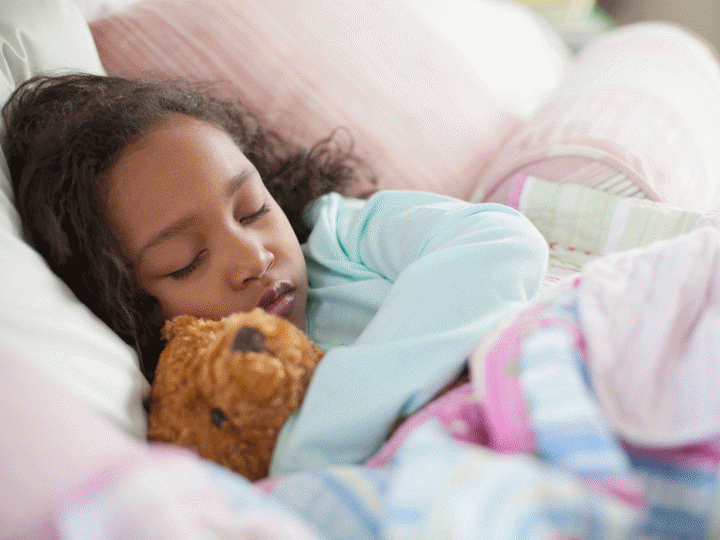Melatonin

On this page you'll find information for parents and carers about how to administer melatonin to their child and the ongoing use of the medication.
This information might be different from information provided by the manufacturers. This is because the manufacturers information is usually aimed at adults.
Understanding melatonin
If your child isn’t getting enough sleep, it can affect their health, mood, behaviour, and development. Taking melatonin may help your child get into a regular sleep pattern, which can make them feel better and more rested.
Melatonin is a chemical that the brain naturally makes when it gets dark outside. The melatonin medicine helps to increase this chemical in your child’s body. This can help reset their sleep cycle, so they can sleep better at night.
Melatonin usually comes as modified release tablets. They can be given to children with certain medical conditions if the doctor feels it is appropriate and would be helpful. These tablets release the medicine slowly. Sometimes, melatonin is available in other forms, like liquid, if needed.
How much and when to give melatonin
You should give melatonin once a day, about 30 to 60 minutes before your child’s bedtime. It’s important to give it at the same time every day so that it becomes part of your child’s routine. This will also help you remember to give it.
The amount of melatonin your child needs (called the dose) will be decided by your doctor. The dose will be shown on the medicine label. Your doctor will check if this amount is right for your child at their next appointment and may change it if needed. Always follow your doctor’s instructions on how much to give.
How to give melatonin
Your doctor will explain how to give melatonin depending on your child’s sleep problem. If your child is given modified-release tablets, they should swallow the tablet whole unless told otherwise by your doctor or pharmacist. These tablets usually shouldn’t be chewed as it can affect how they work.
If your child can’t swallow tablets, your doctor might suggest crushing it. Crushed tablets work faster, but the effect might not last as long. You can mix the crushed tablet with soft foods like yogurt or ice cream to make it easier for your child to take.
If your child has a gastrostomy or is prescribed a different form of melatonin, your pharmacist will tell you how to give it.
Your child should feel sleepy about 30 to 60 minutes after taking melatonin. This may happen sooner if the tablet is crushed. The time it takes to work can vary for each child.
If your child vomits less than 30 minutes after taking melatonin, you should give them the same dose again. If it has been more than 30 minutes, you don’t need to give them another dose that night.
What to do if you miss a dose
If you forget to give melatonin and your child is already asleep, wait until the next day to give the usual dose. If your child is still awake and it’s before midnight, you can give them the dose as normal.
What to do if you give too much
If you think you’ve given your child too much melatonin, call NHS 111 for advice. Make sure to have the medicine or packaging with you when calling.
Possible side effects
Most children don’t have side effects from melatonin, but it can happen.
If your child feels unwell in a way that is unusual for them, take them to the hospital. This could include chest pain or a fast heartbeat (which may feel like fluttering feeling in their chest or their heart beating quickly).
Other possible side effects may include your child feeling dizzy, nervous, or have a stomach ache. They may also develop a rash or feel itchy. If you are worried about any side effects, contact your doctor. There may sometimes be other side effects not listed here.
If you notice anything unusual, speak to your doctor. You can also report any suspected side effects to a UK safety scheme called Yellow Card.
You can give your child paracetamol or ibuprofen unless your doctor has said not to. Melatonin may not mix well with some medicines. It’s important to tell your doctor and pharmacist about any other medicines your child is taking before starting melatonin. This includes herbal and complementary medicines. Always check with your doctor before giving your child any new medicines.
Future use of melatonin
Treatment with melatonin is usually started on the advice of a paediatrician, child psychiatrist or specialist clinician. After starting melatonin, you’ll usually get the prescription from your GP. If you have any questions about your child’s use of melatonin, your GP can contact the specialist for advice.
Melatonin is typically used for a certain period of time to help your child establish a better sleep pattern. It is very important that you give your child regular breaks, and we suggest stopping it for a week over school holidays. After about six months, your doctor may stop the melatonin to see if your child’s sleep has improved. This is called a "melatonin drug holiday." It can be done during school holidays or a weekend. Sometimes after this break, your child may no longer need melatonin.
When used for longer periods, melatonin can become less effective.
Managing your child's medicine
Only give melatonin to your child and never share it with anyone else, even if their condition seems similar. This could be harmful. If you think someone else has taken the medicine by accident, contact your doctor or NHS 111 immediately.
Make sure you always have enough medicine by ordering a new prescription at least two weeks before you run out. Check the use-by date on the packaging and give any old medicine to your pharmacist to safely dispose of.
Storing melatonin
Keep the medicine in a cupboard, away from heat and direct sunlight. If you are using liquid melatonin, check if it needs to be kept in the fridge. Always store the medicine where your child cannot see or reach it, and keep it in its original container.
Last reviewed: 8 May, 2024

